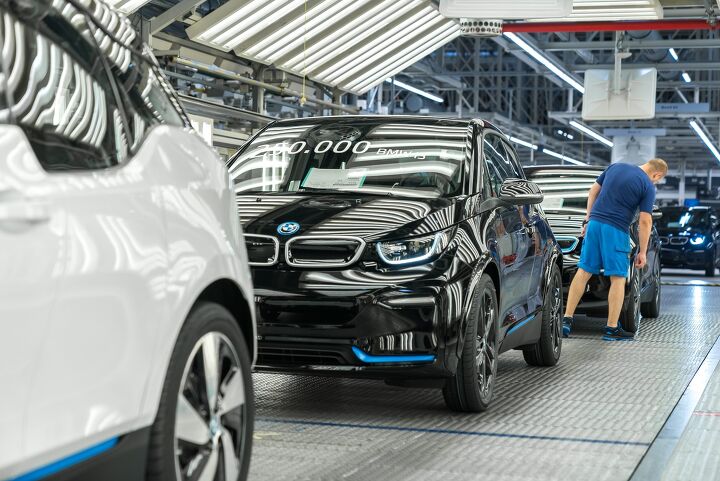
As BMW’s first mass-produced “zero emissions” vehicle, the i3 boasted a predictably quirky design that seemed to underpin most manufacturers early attempts at fielding an electric car. But the model fell short in terms of range and luxury, especially in relation to MSRP, resulting in a de facto city car for those who liked the idea of owning a BMW-badged EV.
While the vehicle implemented some novel features, the model has aged rather poorly due to advancements in battery technology. It could be argued that the i3 ended up a failure due to the fact that BMW never figured out how to produce them cheaply enough to be a volume vehicle. However, it may have also been too odd to garner true mainstream appeal — something the brand says it doesn’t want to happen for the i3’s successor.
Speaking with Germany’s Automobilwoche, BMW development boss Frank Weber admitted that the i3 was a bit of an odd duck.

"A lot of people liked it, but in the eyes of others the i3 was not a real BMW. A bit of an outsider in the classroom if you will. We will not repeat that in this form," he said.
On our market, the i3 was rarely seen beyond urban hubs. Over its nine-year production run, the little EV amassed roughly 250,000 sales globally and only about 45,000 of those landed in the United States. It was far more popular in Europe, with Germany seeing 47,500 i3 sales all by itself. But it was still a niche vehicle — too expensive to be entry-level and too humble to be a valid luxury product.
It lasted longer than many expected, with BMW ending production in August of 2022.

"BMW definitely needs to bring to market an affordable, compact car,” Weber said. "We attach great importance to offering customers the best possible access to the BMW brand. That is why we are thinking very carefully about how an entry offering can be part of the Neue Klasse family."
The brand’s “Neue Klasse” electric architecture is supposed to serve as the foundation for all subsequent EVs assembled by BMW. It’s supposed to ensure improved charging times, improved range, and reduced production costs across the lineup. However, Weber believes it will also help the company build a mainstream version of what the i3 was supposed to be.
That said, developing small and affordable vehicles doesn’t seem to be at the top of most automakers’ list of priorities right now. Despite global economic situations looking poised to toss a large portion of the planet into a subsistence mindset that would favor cheap, reliable transportation, most companies still seem to be prioritizing larger vehicles with broader profit margins.

BMW’s Neue Klasse vehicles aren’t even supposed to enter into production until 2025 and the first examples will be midsize sedans and sport utility vehicles. The i3 replacement is presumably going to manifest sometime after that.
"Within the first two years, we will then expand the Neue Klasse by four more vehicles," Weber stated. "You can easily imagine that a lot can be created from the middle downward to smaller vehicles as well as upward to larger vehicles.”

[Images: BMW]
Become a TTAC insider. Get the latest news, features, TTAC takes, and everything else that gets to the truth about cars first by subscribing to our newsletter.
from TheTruthAboutCars https://www.thetruthaboutcars.com/cars/news-blog/report-future-bmw-i3-will-be-less-weird-than-original-44503396?utm_medium=auto&utm_source=rss&utm_campaign=all_full
No comments:
Post a Comment